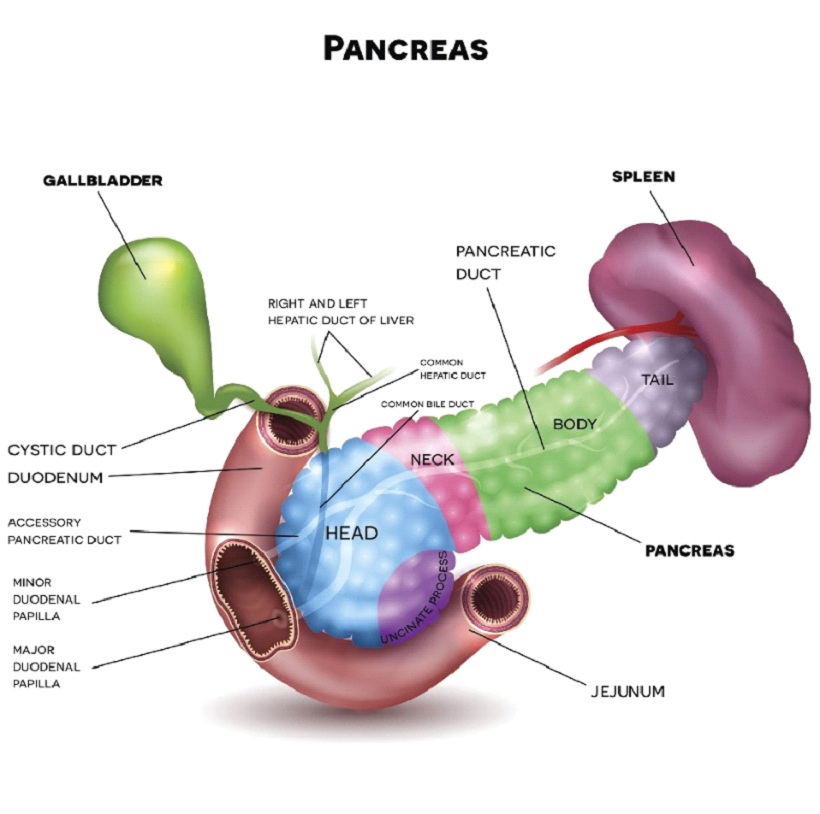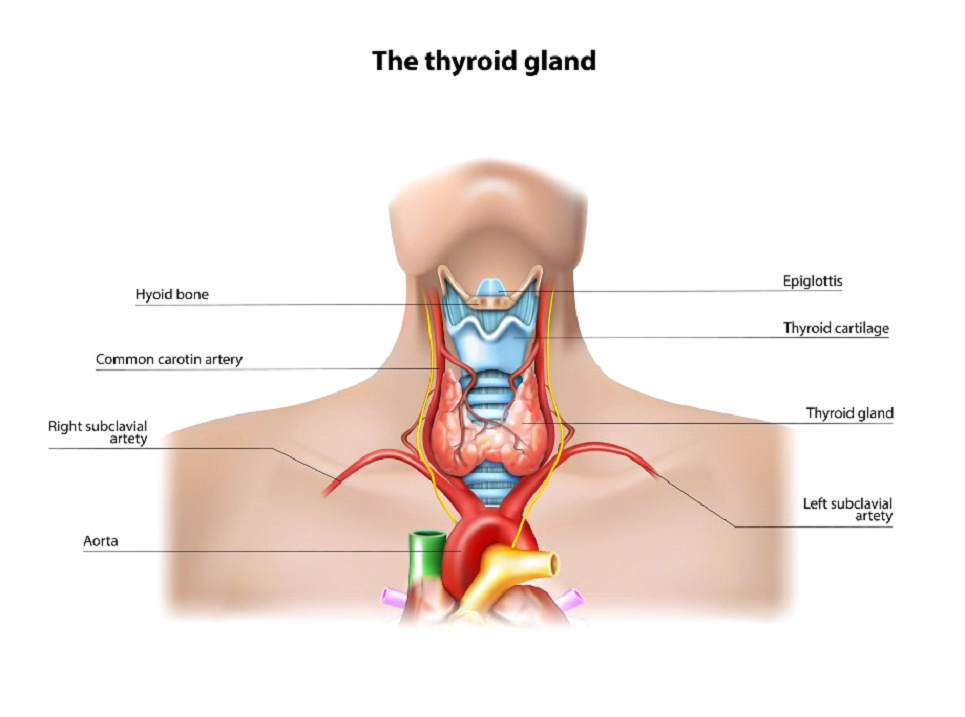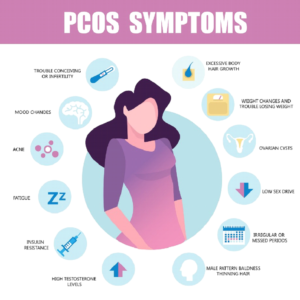Find out everything you need to know about Diabetes, Thyroid Disorders and Polycystic Ovary Syndrome (PCOS) — the 3 common disorders of our endocrine system.
What is the Endocrine System
The endocrine system is a complicated system of glands and organs that are interconnected and responsible for regulating a wide variety of bodily functions. It is one of the most important systems in the human body.
From growth, development, metabolism, and reproduction to energy levels, moods, and more — the endocrine system works to maintain balance for our overall health.
3 Common Disorders of the Endocrine System
There are many different kinds of endocrine disorders. They usually result due to hormone imbalance or the formation of lesions in the endocrine system.
Most endocrine disorders can be treated if they are diagnosed early. The symptoms of these disorders can vary from person to person. They also depend on the gland involved.
Three of the more common endocrine disorders that occur due to hormonal imbalance include:
- Diabetes
- Hypothyroidism and Hyperthyroidism
- Polycystic Ovary Syndrome (PCOS)
1. Diabetes and the Organs/Glands Involved
The organ most involved in Diabetes is the Pancreas. Diabetes is a disorder in which either the pancreas does not make enough insulin or the body is unable to utilize it effectively.

Source: iStock
The pancreas is a large gland organ located in the abdomen behind the stomach. This organ has two primary functions: an exocrine function that aids digestion and an endocrine function that regulates blood sugar levels.
In contrast to enzymes, which are released into the digestive system, hormones produced by the pancreas are released into the blood and carry messages to other parts of the digestive system.
Two of the primary pancreatic hormones are insulin and glucagon. Insulin acts to lower blood sugar and glucagon acts to raise blood sugar. It is essential to keep blood sugar levels at a healthy level in order for vital organs like the kidneys, liver, and brain to work properly. (Source: https://columbiasurgery.org/
Diabetes is a chronic disease that develops either when the pancreas fails to secrete an adequate amount of insulin or when the body is unable to make proper use of the insulin it produces.
There were 108 million people with diabetes in 1980 and 422 million in 2014. The rate of increase has been faster in low- and middle-income countries than in high-income countries. (Source: https://www.who.int/news-room/fact-sheets/detail/diabetes )
Some of the symptoms of Diabetes include:
- Excessive thirst
- Excessive hunger
- Frequent urination, often at night
- Blurry vision
- Dry, cracked skin, especially on the feet
- Numbness or tingling in hands or feet
- Fatigue
- Weigh loss without trying
- Sores that are slow to heal
- Having more infections than usual, such as Fungal infections of the nose and throat, Urinary tract infections, infections and wounds in the leg
(Source: https://www.cdc.gov/diabetes
There are three primary kinds of diabetes: Type 1, Type 2, and Gestational diabetes (diabetes while pregnant).
1 Type 1 Diabetes
Researchers believe that an immunological reaction is at the root of type 1 diabetes (the body attacks itself by mistake). Because of this reaction, your body will no longer produce insulin. Type 1 diabetes affects around 5–10% of those who are diagnosed with diabetes. Diabetes type 1 frequently manifests itself with rapid onset of symptoms. In most cases, the diagnosis is made in younger people, including children, adolescents, and young adults.
2 Type 2 Diabetes
With Type 2 diabetes, the body is unable to make effective use of insulin and cannot maintain normal blood sugar levels. About 90–95% of diabetics have type 2 diabetes. It develops gradually and is typically diagnosed in people over age 45. However, increasing numbers of children, adolescents, and young adults are developing it as well.
(Source: https://www.cdc.gov/diabet
3 Gestational Diabetes
Gestational diabetes develops in pregnant women who have never had diabetes. Gestational diabetes affects between 2% and 10% of pregnancies annually in the United States. This type of diabetes usually goes away after your baby is born. However, it increases the risk of developing type 2 diabetes later in life. However, it raises the likelihood of getting type 2 diabetes in the future. The infant is more likely to have childhood obesity and acquire type 2 diabetes later in life.
Can Diabetes be cured?
Diabetes can be effectively managed when diagnosed early. However, when left untreated, it can lead to potential complications.
2. Hyperthyroidism, Hypothyroidism and the Organs/Glands Involved

Source: iStock
The gland that is involved in these two diseases is the Thyroid Gland. The thyroid is a small butterfly-shaped gland found at the base of the neck, just below Adam’s apple.
The thyroid gland releases tri-iodothyronine (t3) and thyroxine (t4) in response to thyroid-stimulating hormone (TSH) which is released from the pituitary gland. Both T3 and T4 regulate basal metabolic rates and affect the metabolism of carbohydrates, fats, and proteins.
2.1 Hypothyroidism (Underactive Thyroid)
Hypothyroidism, also called underactive thyroid, is when the thyroid gland does not make enough thyroid hormones to meet the body’s needs. Women are much more likely than men to develop hypothyroidism. The disease is also more common among people older than age 60.
Hypothyroidism has many symptoms that can vary from person to person. Some common symptoms of hypothyroidism include:
- fatigue,
- weight gain,
- cold intolerance,
- dry skin or dry, thinning hair,
- depression,
- joint and muscle pain.
2.2 Hyperthyroidism (Overactive Thyroid)
Hyperthyroidism, also called underactive thyroid, is when the thyroid gland makes too much thyroid hormone. Hyperthyroidism speeds up the body’s metabolism. That can cause many symptoms, such as:
- weight loss,
- hand tremors,
- rapid or irregular heartbeat,
- heat intolerance,
- diarrhoea,
- muscle weakness.
(Source: https://www.hopkinsmedicine
conditions-and-diseases/disorders-of-the-thyroid#:~:text
20thyroid%20include,pregnancy%2
Can thyroid disease be cured?
All thyroid diseases can be treated, resulting in normal thyroid function. However, this frequently requires being on medication to maintain the normal thyroid state.
3. Polycystic Ovary Syndrome (PCOS) and the Organs/Glands Involved
Polycystic ovary syndrome (PCOS) is not a disease but a group of symptoms. Every system in the body is impacted by PCOS. It raises a woman’s risk of developing serious illnesses, some of which could have permanent effects.
PCOS affects 6% to 12% (up to 5 million) of American women of reproductive age, making it one of the most prevalent reasons for female infertility. However, this chronic health condition lasts far beyond the child-bearing years.
(Source: https://www.cdc.gov/diabetes/
#:~:text=What%20is%20PCOS%3F,bey

Credit: iStock
Some of the symptoms and conditions of PCOS include:
- Missed periods, irregular periods, or very light periods
- Infertility
- Ovaries that are large and contain many fluid-filled sacs (follicles)
- Excess body hair and Male-pattern baldness
- Insulin resistance
- Obesity
- Acne
- Dark or thick skin patches on the back of the neck, in the armpits, and under the breasts
- Fatty liver
- Heart disease
- Type 2 diabetes and excessive cholesterol in later life
- Significant psychological symptoms such as Depression and Anxiety
(Source: https://www.endocrineweb.com’
polycystic-ovary-syndrome-pcos/what-causes-pcos-
Can PCOS be cured?
A cure for PCOS has not been found yet. But the symptoms can be reduced and some serious health risks can be prevented with medications, changes in diet and symptom-specific therapies. (Source: https://www.endoc
rineweb.com/conditions/
polycystic-ovary-syndrome-pcos/what-causes-pcos-how-will-it-affect-body)
Questions to Ask Your Doctor About Your Endocrine Health
It is important to take an active role in your endocrine health and wellness by asking the right questions to your doctor.
If you are unsure of what information will be helpful, consider asking about family history, risk factors and warning signs of related illnesses or conditions; whether family history may play any part and whether there are any particular lifestyle habits or dietary adjustments that can contribute positively or negatively and if you could take any steps to prevent or delay illnesses.
Be sure to also inquire about any new treatments, screenings or diagnostic tests available, as well as any general advice on how best to maintain your endocrine health.
With the answers to these questions in hand, you will be better equipped to make decisions that positively impact your overall wellness now and in the future.
Final thoughts
The endocrine system plays a vital role in maintaining our overall health and well-being. Without it, many of our bodily processes would be out of balance, and we would not be able to function properly.
If you are concerned about your endocrine system, always discuss your symptoms with a healthcare professional. They will be able to provide you with the necessary information, run tests and provide you with the best course of action for keeping your endocrine system functioning properly.
With proper care and attention, you will be able to enjoy optimal health and wellness.
References:
- https://www.who.int/news-room/fact-sheets/detail/diabetes )
- https://www.cdc.gov/diabetes/basics/
type2.html#:~:text=
Type%202%20diabetes%20most
%20often,adults%
20are%20also%20developing%20it.
- https://www.cdc.gov/diabetes/
basics/gestational.html#:~:text
=Gestational%20diabetes%20is%20a%2
0type,pregnancy%20
and%20a%20healthy%20baby
- https://www.niddk.nih.gov/h
ealth-information/endocrine-diseases/h
ypothyroidism#:~:text=Trials%20for%20
Hypothyroidism-,What%20is%20hypoth
yroidism%3F,the%
20front%20of%20your%20neck.
- https://my.clevelandclinic.org/health
- /diseases/14129-hyperthyroidism
- https://www.hopkinsmedicine.org/health
/conditions-and-diseases/disorders-of-the-thyroid#:~:t
ext=Problems%20with%20the%
20thyroid%20incl
ude,pregnancy%20and%20many%
20other%20functions.
- https://pubmed.ncbi.nlm.nih.gov/
27034186/#:~:text=PCOS%20i
s%20a%20diagnosis%20of,fat%20cells
%2C%20and%20endocrine%20pancreas
- https://www.endocrineweb.com/
conditions/polycystic-ovary-syndrome-
pcos/what-causes-pcos-how-will-it-affect-body
- https://www.endocrineweb.com/
conditions/polycystic-ovary-syn
drome-pcos/what-causes-pcos-how-will-it-affect-body
DISCLAIMER:
The information provided in this article is for general information only. It should not be used as a substitute for professional medical advice, diagnosis, or treatment. Please consult your healthcare provider if you have any questions related to your health.
This article does not have any affiliate links and is not sponsored by any company or organization.





